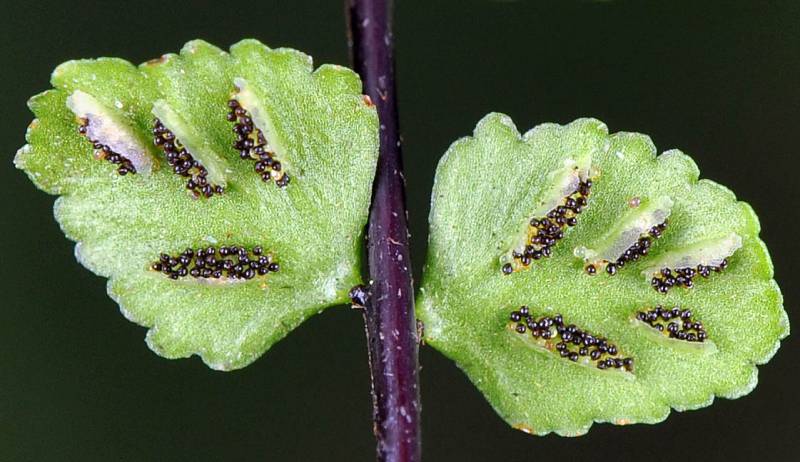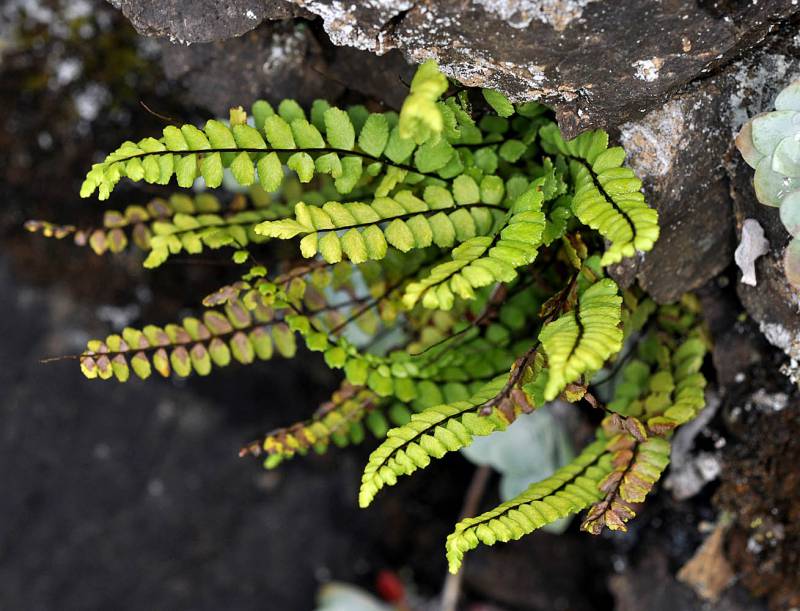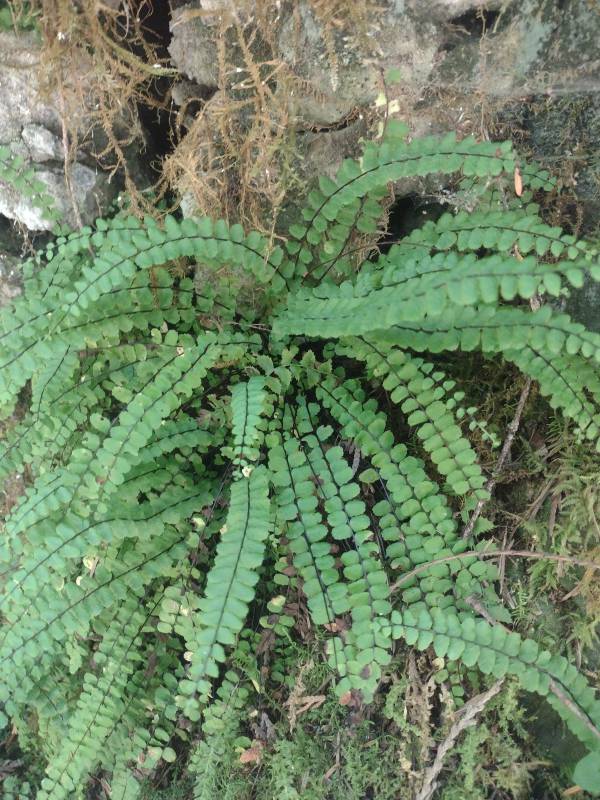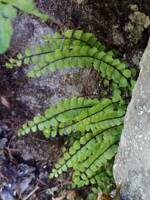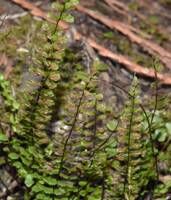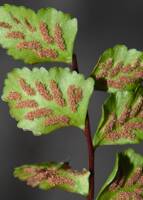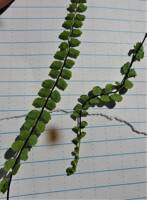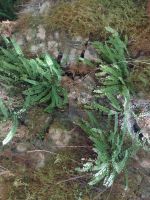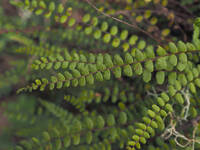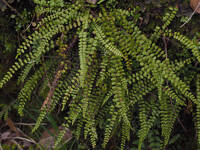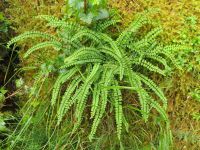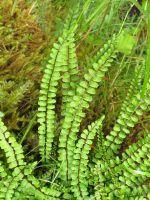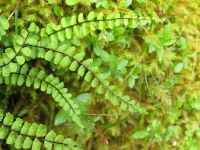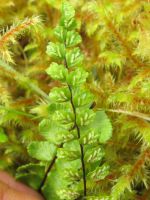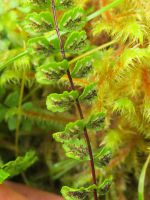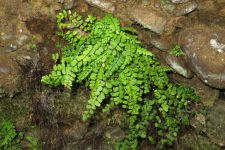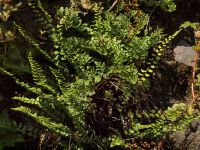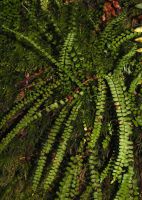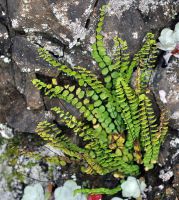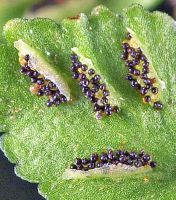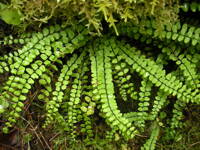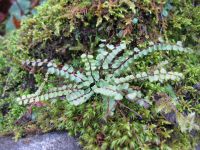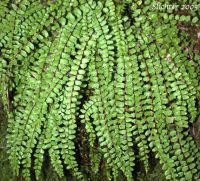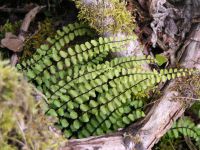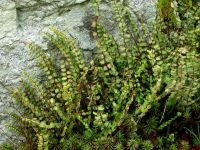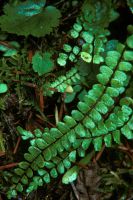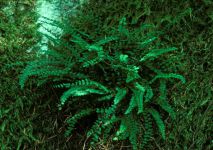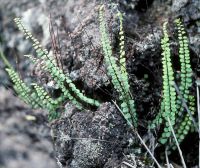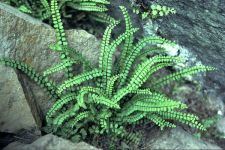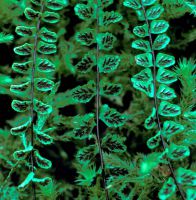Distribution: Occurring chiefly west of the Cascades crest in Washington; Alaska to California, also in southern Rocky Mountain states and in central U.S. and eastern North America.
Habitat: Cliff crevices, rocky outcroppings, and talus slopes, generally where moist.
Spores: May-September
Origin: Native
Growth Duration: Perennial
Conservation Status: Not of concern
Perennial from fibrous roots not proliferous; stems short-creeping, commonly branched; scales completely black or with brown edges, lanceolate, 2-5 mm long and 0.2-0.5 mm broad, margins entire or finely toothed.
Leaves monomorphic; petiole reddish to blackish brown, somewhat shiny, 1-4 cm, 1/4 length of blade or less, with black scales linear-lanceolate or filiform at base, or none; blade linear, 1-pinnate, 3-22 cm long and 0.5-1.5 cm broad, thin, slightly pubescent or not, base tapering gradually, apex narrowly acute, not rooting; rachis reddish brown, shiny, glabrous or with sparse indument; pinnae in 15-35 pairs, oblong to oval, medial pinnae 2.5-8 mm long and 2.5-4 mm broad, base broadly wedge-shaped, sometimes with low rounded auricle facing apex, margins with shallow round teeth to serrate to entire, apex obtuse.
Sori in 2-4 pairs per pinna; spores 64 per sporangium.
Publication: Sp. Pl. 2: 1080. 1753.
-
ssp. quadrivalens – maidenhair spleenwort
 Occurring chiefly west of the Cascades crest in Washington; southern British Columbia to northwestern Oregon; also in eastern North America.
Occurring chiefly west of the Cascades crest in Washington; southern British Columbia to northwestern Oregon; also in eastern North America. -
ssp. trichomanes – maidenhair spleenwort
 Occurring west of the Cascades crest in Washington; British Columbia to California, also in the southern Rocky Mountains and eastern North America.
Occurring west of the Cascades crest in Washington; British Columbia to California, also in the southern Rocky Mountains and eastern North America.
PNW Herbaria: Specimen records of Asplenium trichomanes in the Consortium of Pacific Northwest Herbaria database
WA Flora Checklist: Asplenium trichomanes checklist entry
OregonFlora: Asplenium trichomanes information
E-Flora BC: Asplenium trichomanes atlas page
CalPhotos: Asplenium trichomanes photos

